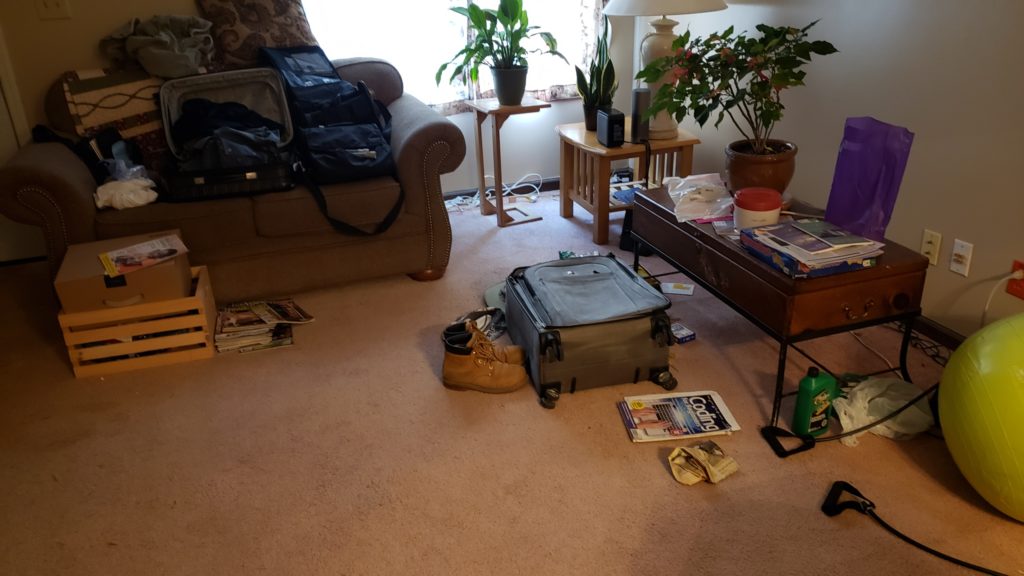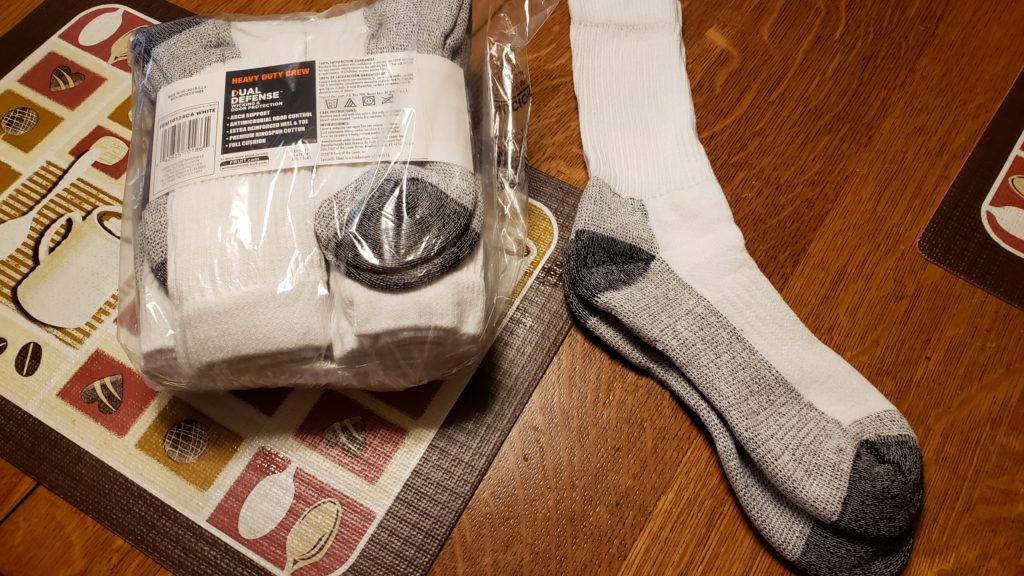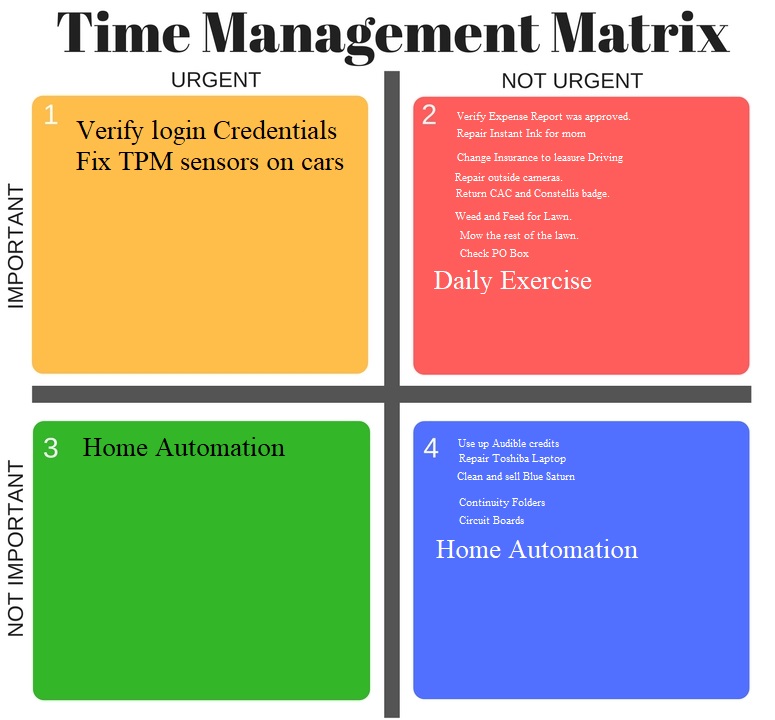Status: We went out last night to an almost empty Kroger and replenished our produce. The store was closing in 40 minutes at 9PM so the traffic was light. (Website said nothing about the limited hours that are applied store-by-store and I looked earlier today.) Thankfully the produce section was stocked! I think the only thing on the wife’s list we didn’t get last night was bagels.
Disinfecting our return trip was loaded with obstacles. If we assume that the buggy could have a virus on its surfaces then all the grocery items are now contaminated. Cept maybe the produce that was in separate bags. But even then the cashier handled the produce to get the bar code scanned.
We do have the option to wash the cans or just let them sit for a few days until the virus dies. The frozen shouldn’t be a problem. The produce surely is. Apples we can wash, bananas are a bit more difficult. Oranges are considerably more difficult but maybe the citric acid will kill the virus. (Need to look that up.) The plastic containers for the Strawberries and Blueberries are something we handle before we touch the fruit. (But we keep them in the fridge.) Anyways, we need a good plan going forward. Bringing disinfectants into the store rather than depending on the disinfectants that were previously in the store. (Not last night though.)
Found the following article online from NBC Today show in two places.
https://www.today.com/food/how-safely-shop-groceries-if-you-re-concerned-about-coronavirus-t176047

© Getty Images Shopping for groceries these days may require a few extra steps to cut down on the spread of germs.
The coronavirus pandemic is already wreaking havoc on the restaurant industry. But with more people being advised to eat meals at home, grocery shopping has become increasingly difficult as supermarkets adjust their schedules to keep up with the overwhelming demand.
Unless you are sick, elderly or an individual with a compromised immune system, grocery shopping can still be done safely. However, there are several guidelines shoppers should follow before, during and after their next trip to the store.
For starters, food isn’t the enemy.
“In general, places that sell food are hard-wired for sanitation and hygiene,” Celine Beitchman, director of nutrition at the Institute of Culinary Education, told TODAY Food. Health officials have yet to name food as a source of transmission, but since the virus spreads by human contact and can live on certain surfaces for hours, or even days, it’s important to minimize points of contact as much as possible, especially in the most public of places, like a grocery store.
When is the best time to go shopping?
Traditionally, it’s been early in the morning or late at night. But with major stores like Walmart, Albertsons and Trader Joe’s cutting store hours, and more people working from home, it’s harder to tell these days.
If you can go earlier in the day, you’ll have a better chance of finding what you’re looking for, but you may end up waiting in a line to get in. If you go later in the day (closer to closing time), there will likely be fewer crowds but emptier shelves.
Some stores in the U.S. and abroad have introduced senior-only hours in order to accommodate individuals who are most at risk.
What to do before you go
While shoppers can’t control who they will encounter in the store, they can make things easier — and safer — by preparing in advance. Now, more than ever, Beitchman recommends creating a list of what you’ll plan to make and eat for the days ahead.
Based on that list and your budget, make your concise shopping list. And don’t just rely on non-perishables. “Fruits and vegetables provide a wealth of nutrients that support whole body health, including a strong immune system,” said Beitchman.
Also, make sure to bring sanitizing wipes and hand sanitizer with you to the store.
Don’t take the whole family along
In order to streamline the trip and keep grocery stores less crowded, try to limit how many people you take with you. The elderly and any immunosuppressed persons should stay home during peak hours. Kids may be attending school at home but, according to Beitchman, they probably shouldn’t be shopping unless they’re old enough to help and can be counted on to keep their hands away from their faces.
Sanitize your surroundings
When you get to the store, use a sanitizing wipe to rub down high-touch areas like cart and basket handles. You should also use hand sanitizer or wash your hands immediately after leaving the checkout lane, especially if you used the touch screen for payment.
Stay focused and be mindful
“I think the best strategy is to limit your time in the store as much as possible,” said Amanda J. Deering, clinical assistant professor in the Department of Food Science at Purdue University. Part of limiting one’s time in the store means understanding the general layout of aisles and knowing where everything is.
Most perishables (produce and dairy) are kept around the periphery of the store, while shelf-stable processed foods and cleaning products are in the middle aisles, said Beitchman. Plan to start with the non-perishable items.
Shop with your eyes, not your fingers
Deering told TODAY Food that the riskiest areas will be those with items people touch the most, like salad bars (which should be avoided these days) and the produce section. “Make these your last stops in the store to avoid transferring the virus, if present, to other areas,” she said.
Typically, picking produce involves touching and poking around for desired ripeness, but these days it’s best to avoid touching anything you don’t have to and use your eyes to dictate what’s fresh. For example, avoid fresh foods with obvious bruises or brown spots. If the food comes in plastic packages, be mindful to touch just the one you want to select.
“If you’re immunocompromised, consider buying pre-packaged produce that likely has undergone strict sanitation standards at the packing site,” added Beitchman, who also advised cooking any raw vegetables to further cut down on the risk of contamination.
Don’t hoard
Unless you’re shopping for dozens of people, buying a year’s worth of food may not only lead to potential waste, but it will also make it harder for others to feed their families. Unless your family has been placed under quarantine, current Department of Homeland Security guidelines recommend buying enough food to last for two weeks at a time. The same goes for toilet paper.
When you get home
After you wash your hands, don’t forget about washing your produce. There have been no reported cases of COVID-19 being transmitted through food, but it’s possible for the virus to live on surfaces. When you get home, scrub hard-skinned produce with a soft-bristled vegetable brush, using a little bit of soap and warm water. Other types of produce, like fruits or leafy veggies, can be soaked for about 15 minutes in soapy water. Make sure to rinse them thoroughly before consuming.
If you used reusable bags at the store, make sure to wipe them down thoroughly or wash them immediately.
Yesterday we were looking for a freezer that could be used as a backup refrigerator. The smaller ones are all sold out of most stores. I was looking at Wally World and noticed they had an online seller that had one.

It was smaller than what I had hoped, but it uses a DC compressor and can get to a temperature something like -5 degrees. The battery connection is automatically used if the AC power fails. It’s about the size of a good sized ice chest ~3 Cu Ft. The vendor cancelled the order citing something wrong with my credit card. I checked my CC and reordered it. Again they cancelled the order with no explanation. I sent them a message and they cited the unit they were boxing up was damaged. (And it was out of the box Why?) I checked Amazon and they had one for $200 less than Wal-Mart at $600. It arrives next Wednesday, hopefully we’ll not need it. But we’ll have it if we do.
Plans: Stay low and plan our activities to prevent infection.
Narrative: Slept in again until 8AM, the Wife made healthy scrambled eggs (With Spinach) and a good pot of coffee.
The guys at work have been unbelievably quiet. (I assume that they’ve decided I am on Leave and to leave (No pun intended) me alone.
I’ve finally gotten through my magazines and most of them are in the recycling. My travel pile is still in the Livingroom, I’ll deal with that next.

My skivvies arrived yesterday from Amazon to replace the 16 pairs that I left at the hotel in Costa Rica. I don’t carry dirty ones home. I just toss them in the waste basket when I leave. (I used to toss them daily, but the housekeeping staff get a little too helpful and wash them for me. I’ve also had one instance when I was extended with only three pairs left to even wash them LOL.)

One thing I need to do is build a routine, I don’t have one. At the moment I am reactionary to stimulus that seems to keep me occupied throughout the day. Hopefully that will die down and i’ll be better organized.

Tomorrow: Stay home and have patience.
https://www.verywellfamily.com/feelings-words-from-a-to-z-2086647
From the book “Triggers” by Marshall Goldsmith
Did I DMBT set clear goals for the day? No
Did I DMBT make progress to those goals? No
Did I DMBT make my wife feel loved? Yes
Did I DMBT help my wife today? Yes
Did I DMBT fix something today? Yes
Did I DMBT improve something today? Yes
Did I DMBT be happy? Yes
Did I DMBT be fully engaged? Yes
*Did My Best To
Injuries: Arguments: Exercise: Feeling words: Travel: Noteworthy: Accomplishments: Purchases: Project: Theme: Engineering: Repairs: Pi News: